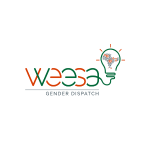

Women’s Economic Empowerment in South Asia (Hosted by SAR GIL)
Tags
- Women’s Groups (20)
- Gender-based Violence (17)
- Implementation Completion Report (ICR) (15)
- Measurement (10)
- Leadership (18)
- Afghanistan (13)
- Social Norms (8)
- Infographics (9)
- Transportation (10)
- Green Transition (6)
- Toolkits (10)
- Pakistan (17)
- Energy (10)
- Jobs (43)
- Self-help Groups (12)
- Infrastructure (7)
- Agriculture (12)
- Social Protection (12)
- Digital Inclusion (16)
- Nepal (7)
- Private Sector (14)
- Care Economy (10)
- Agency and Self-efficacy (4)
- Bhutan (2)
- Sri Lanka (5)
- Podcast (17)
- Operational Documents (20)
- India (23)
- Assets and Resources (14)
- Bangladesh (19)
- Maldives (1)
- Climate Change (18)
- Entrepreneurship (19)
- Financial Inclusion (10)
- Policies and Legislation (14)
- Male Engagement (7)
- Gender Budgeting (7)
- Implementation Completion Report Review (ICRR) (5)
- Education and Skills (22)
Documents
WEESA Brochure - 2024
Gender Equality at IFIs: Promote as I Say, Not as I Do? (2023)
Are Multilateral Development Banks leading by example when making the case that diversity matters for development? This blog, based on a report that scrutinized the human resources statistics of 7 international
Stepping Up for Equality (2024)
The book Women Money Power explores the intersectionality of gender, wealth, and influence in contemporary society, weaving together powerful stories and eye-opening statistics on gender discrimination in the workplace and female leadership
She Wins: Electing Women in Ethnically Divided Societies (2022)
This blog delves into the complex dynamics of gender, religion, and the politics of the marginalized in India. In Bihar, one of India’s most populous and poorest states, researchers conducted a
Gender-Responsive Climate Governance and the Role of Women Leaders (2024)
This IFC report explores the intersection of climate and gender in business practices and the role of women leaders in driving climate change strategies in emerging markets and developing economies (EMDEs).
Diversity Matters Even More: The Case for Holistic Impact (2023)
For almost a decade, McKinsey has tracked data on the link between leadership diversity and financial performance. This report, based on the largest dataset yet (covering 1,265 companies, 23 countries, and
Female Political Representation and Substantive Effects on Policies: A Literature Review (2020)
There are more women in politics than ever before. This paper reviews the substantive effects of female representation on policies, concluding that this leads to a better provision of public goods in
Increasing Women’s Representation in Business Leadership (2023)
Despite the positive link between women in leadership and higher environmental, social, and governance (ESG) standards, gender gaps in corporate leadership persist. This Thematic Policy Note prepared to provide analytical inputs to
Women's Political Leadership and Economic Empowerment: Evidence from Public Works in India (2020)
This research expands the evidence on the economic impacts of female leadership by examining the relationship between village leadership positions held by women (political reservation) and the uptake of economic opportunities
Promoting Women’s Leadership Under Environmental Decentralization: The Roles of Domestic Policy, Foreign Aid, and Population Change (2023)
While decentralization is meant to empower rural people, gender inequalities in leadership persist. In Nepal, the more than 18,000 local Community Forest User Groups (CFUGs) present a test case with